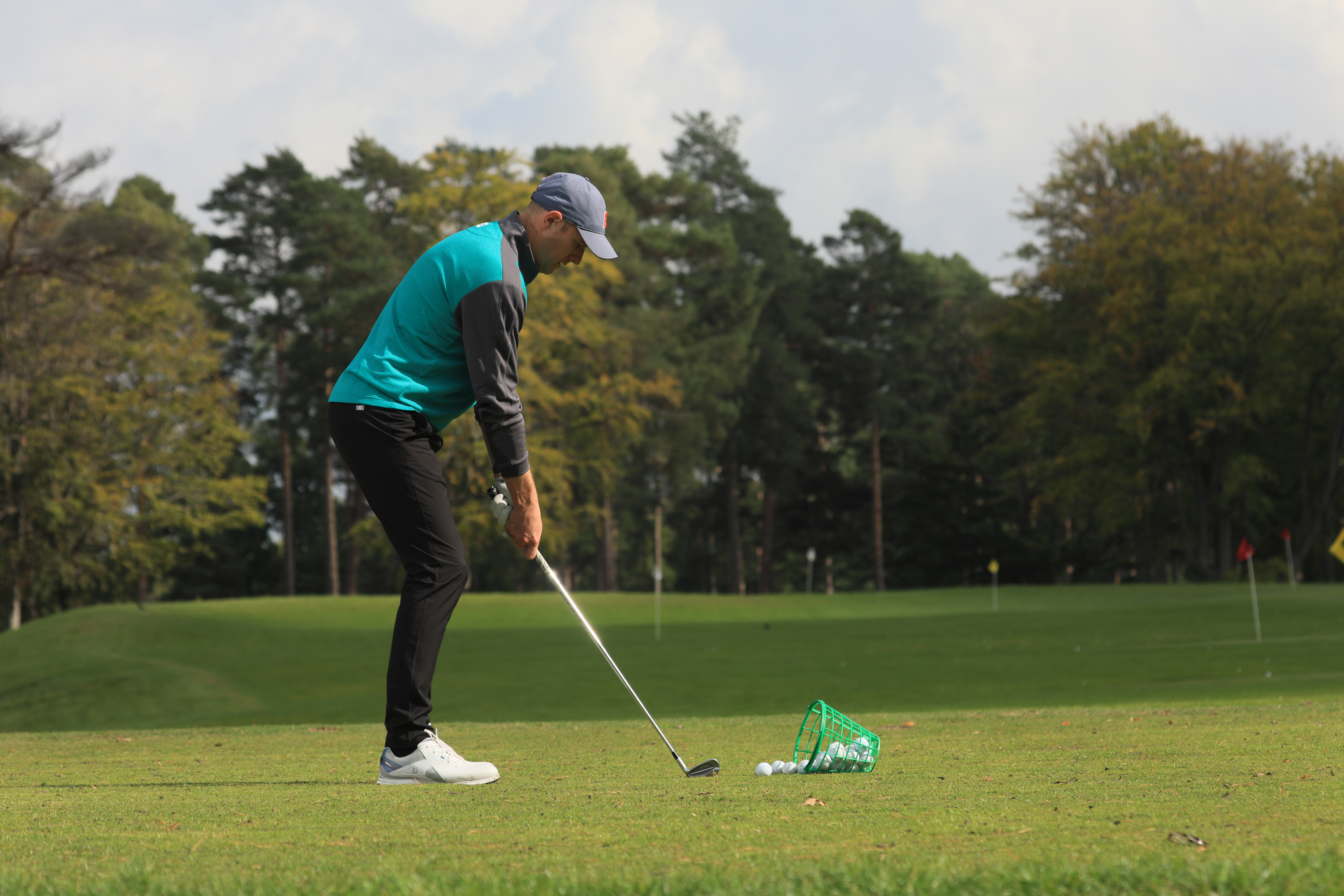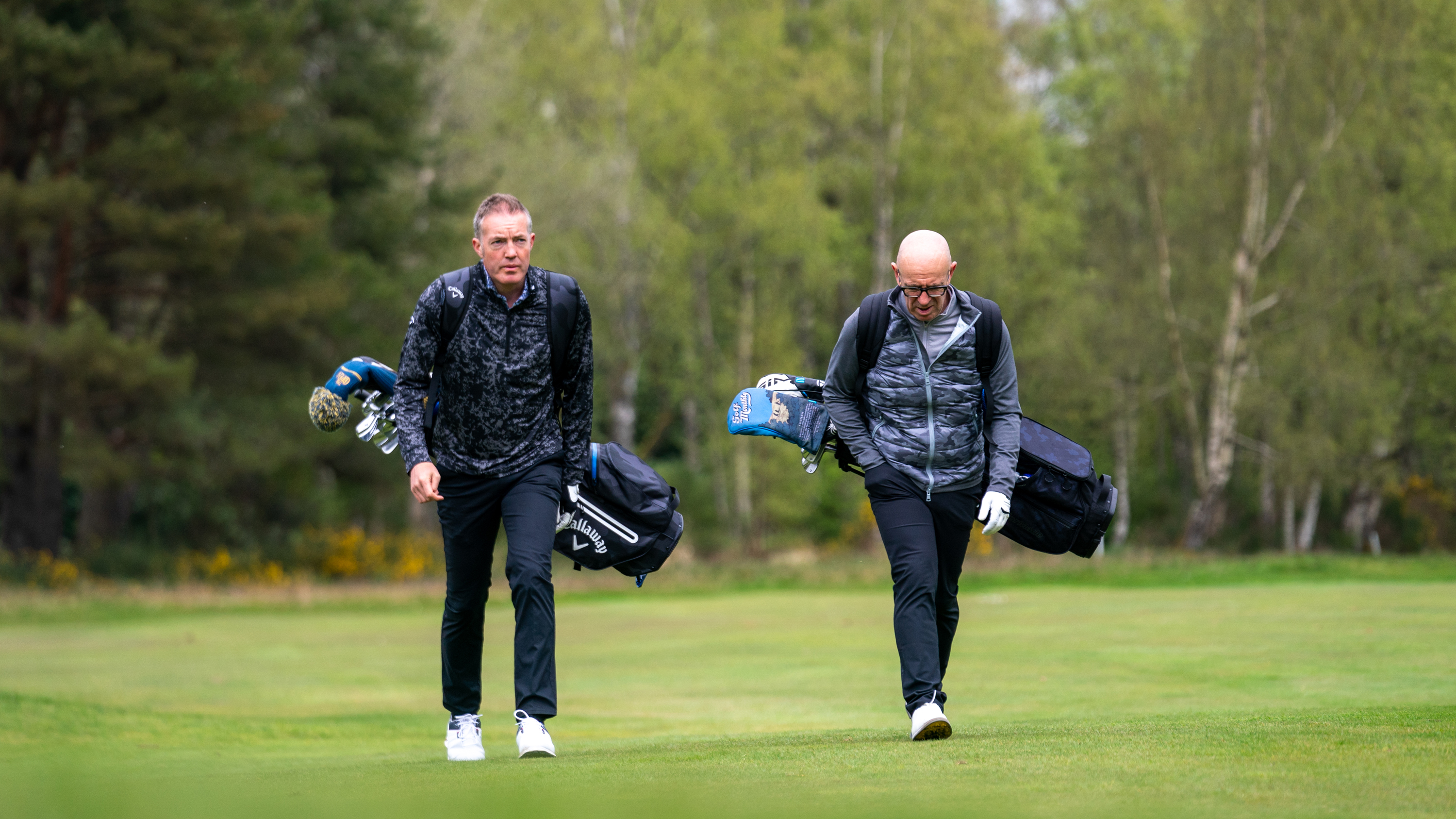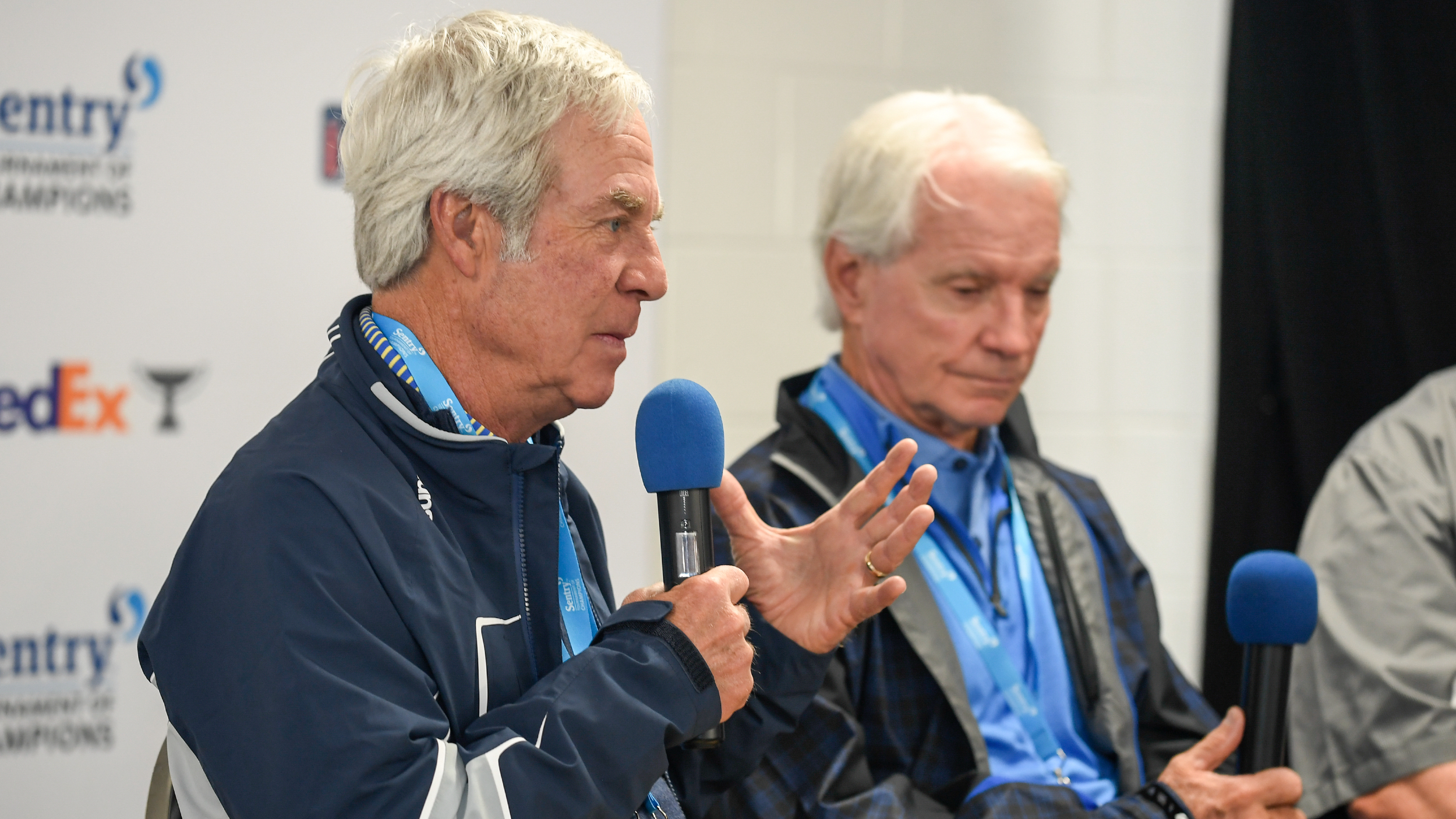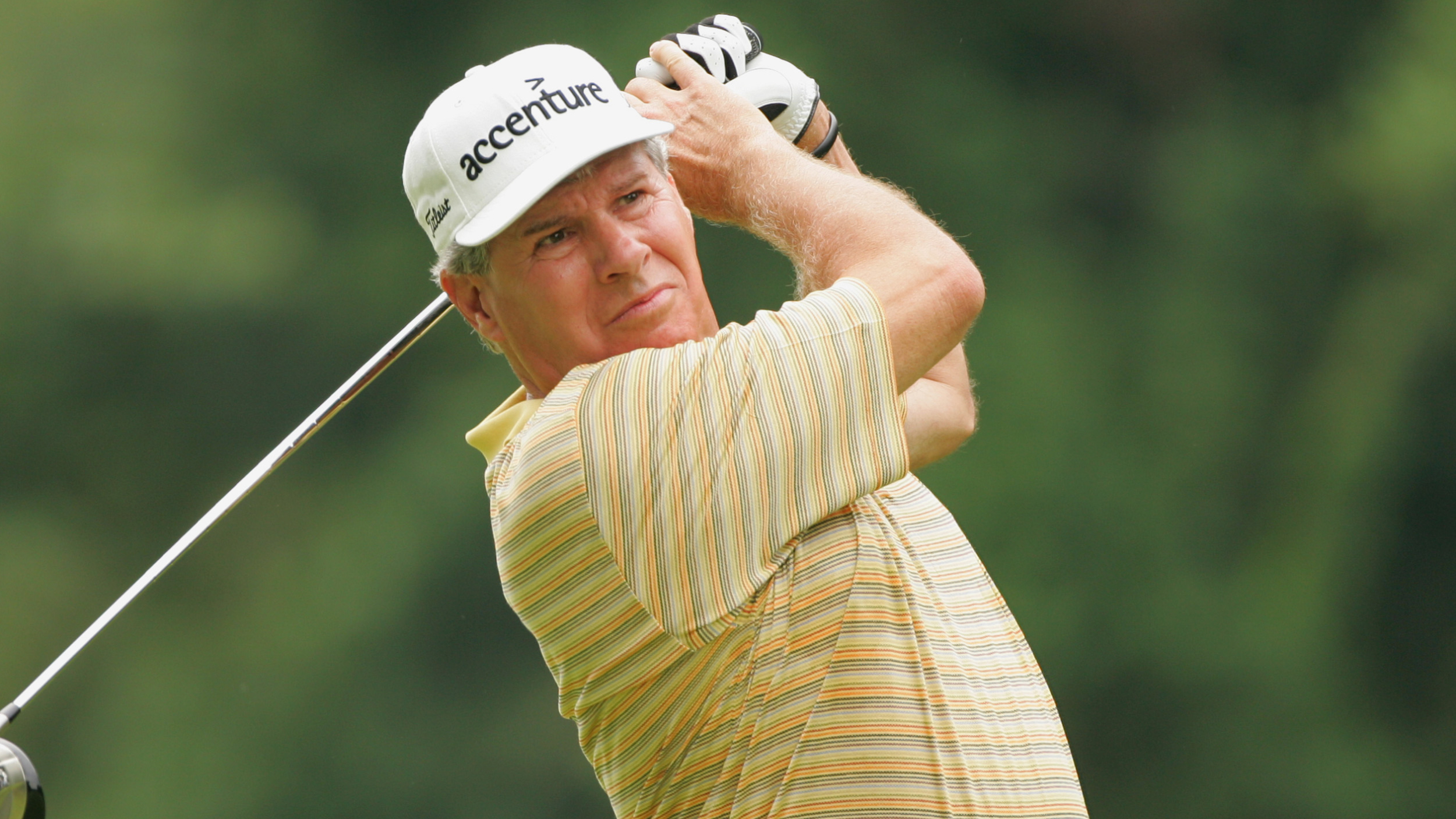Why I’ve Been Addicted To Golf For 40 Years... And Always Will Be
Fergus Bisset considers what has made, and continues to make, golf so compelling and compulsive for him


It started with a sawn-off 7-iron. It was a clunky, heavy old thing – reduced to about 20 inches in length and with a funky blue, ladies’ grip. My father had it “custom built” for me in 1984, when I was just four years old. He took me, that funny wee club and a selection of battered balls to the village green and showed me how to make a basic swing.
I couldn’t swing the club properly because it was a bit heavy, I certainly couldn't lift the clubhead much above waist height, but I managed to make contact a few times and I can still, just about, remember a feeling of excitement at moving the ball forwards a few yards. I had to be physically removed from the village green that day apparently. I was too young to know it but I had become addicted to golf.
In the early years, just moving the ball was satisfaction enough for me. I was elated to see it get airborne, to watch its piffling little flight. But then I would hit it a little further, maybe a little higher. The thrills just kept on coming.
I played my first full 18 holes of golf at Cullen Golf Club in the northeast of Scotland when I was five. I had to miss a couple of shots out because the carries were too long but I completed a scorecard that my parents still have in a photo album somewhere – I think my (unofficial) score was something like 156.
Improving is Addictive

Kids improve fast!
But, that was a starting point to improve upon and improving in anything is somewhat addictive. How far might you be able to go? – Would I be as good as Seve one day? I do remember having vague thoughts like that when I was about nine or 10. Exceptional naivety, and if poor old Seve could see my short game now… well, I would suggest he wouldn’t see my short game, as he would turn away very quickly to avoid catching something awful!
Anyway, I was addicted to improving and that saw me through my teenage years – I got a first handicap of 17, it came down to 14 the next year, 10 the year after that, and then six, then five… it was exciting to keep seeing little improvements.
Of course I was addicted to golf when I was getting better. The question really is, why did I continue to be addicted to golf when I stopped getting better?
Get the Golf Monthly Newsletter
Subscribe to the Golf Monthly newsletter to stay up to date with all the latest tour news, equipment news, reviews, head-to-heads and buyer’s guides from our team of experienced experts.
Things can only get better

There's always something to work on...
To be honest, it’s because I still think I can get better. That may be delusional but I do think it’s possible, even in my mid 40s. I can’t hit the ball further than I did when I was 20 but I can hit it straighter, I can lose my temper less frequently, I can be better at course management, suffer fewer three-putts. There’s loads to try to achieve to sustain my addiction.
These days though, it’s not just trying to play better that fuels my golf addiction. There are plenty of other factors.
Firstly, I’m addicted to the whole process of golf: Thinking about your day on course, preparing your equipment, planning your timings, arriving at the club and speaking with the pro, meeting your playing partners, battling round (good or bad), going for a drink in the clubhouse afterwards to celebrate, or laugh it off. To me, there are few more enjoyable ways to spend free time and I feel better on the days when I get a chance to play. That’s at the root of most addictions, the action makes you feel better, even if just for a few hours.
Social Addiction

It's a supremely sociable sport
I’m addicted to the sociable side of the game. I get pretty crotchety if I don’t see friends and golfing acquaintances often enough. I enjoy my free time at home far more if I’m also out and about a bit (at the golf club that is) … A healthy social life is about finding the balance between time with family and with pals. I’m sort of addicted to getting that balance right. ... Family first - of course!
Playing different courses is addictive – Getting the chance to play at venues where I haven’t played before, or going back to favourite tracks I haven’t visited for some time gives me a buzz. There are clubs where the hairs will stand up on the back of my neck just when pulling into the car park – Nairn and Dornoch spring to mind (and the Old Course at St Andrews), but what real golfer doesn’t get a bit emotional on the first tee of the Old?
I also find golf provides catharsis, and that’s an addictive phenomenon. The worries of the world disappear when you strike a perfect drive down the middle of a beautifully mown fairway. Golf can act like pressing a re-set button to get you back on track when feeling a bit down or a little overwhelmed by life. The company, the fresh air, the physical activity – these are all healthy things that make you feel better and, as I say, things that make you feel better tend to be addictive – you want more of them.
It's good to be addicted to golf. In an age when many of us spend too much time staring at a screen, it delivers a healthy form of escapism. It certainly beats doomscrolling! You’ll be looking at a screen right now reading this – Can I suggest you go out and play some golf?

Fergus is Golf Monthly's resident expert on the history of the game and has written extensively on that subject. He has also worked with Golf Monthly to produce a podcast series. Called 18 Majors: The Golf History Show it offers new and in-depth perspectives on some of the most important moments in golf's long history. You can find all the details about it here.
He is a golf obsessive and 1-handicapper. Growing up in the North East of Scotland, golf runs through his veins and his passion for the sport was bolstered during his time at St Andrews university studying history. He went on to earn a post graduate diploma from the London School of Journalism. Fergus has worked for Golf Monthly since 2004 and has written two books on the game; "Great Golf Debates" together with Jezz Ellwood of Golf Monthly and the history section of "The Ultimate Golf Book" together with Neil Tappin , also of Golf Monthly.
Fergus once shanked a ball from just over Granny Clark's Wynd on the 18th of the Old Course that struck the St Andrews Golf Club and rebounded into the Valley of Sin, from where he saved par. Who says there's no golfing god?
-
 Bill Coore And Ben Crenshaw To Design New Course At Pinehurst Resort
Bill Coore And Ben Crenshaw To Design New Course At Pinehurst ResortBill Coore and Ben Crenshaw are designing a new course for Pinehurst Resort
By Mike Hall
-
 Amateur Legend Jay Sigel Dies Aged 81
Amateur Legend Jay Sigel Dies Aged 81The USGA has announced the American has passed away at the age of 81 from pancreatic cancer
By Mike Hall